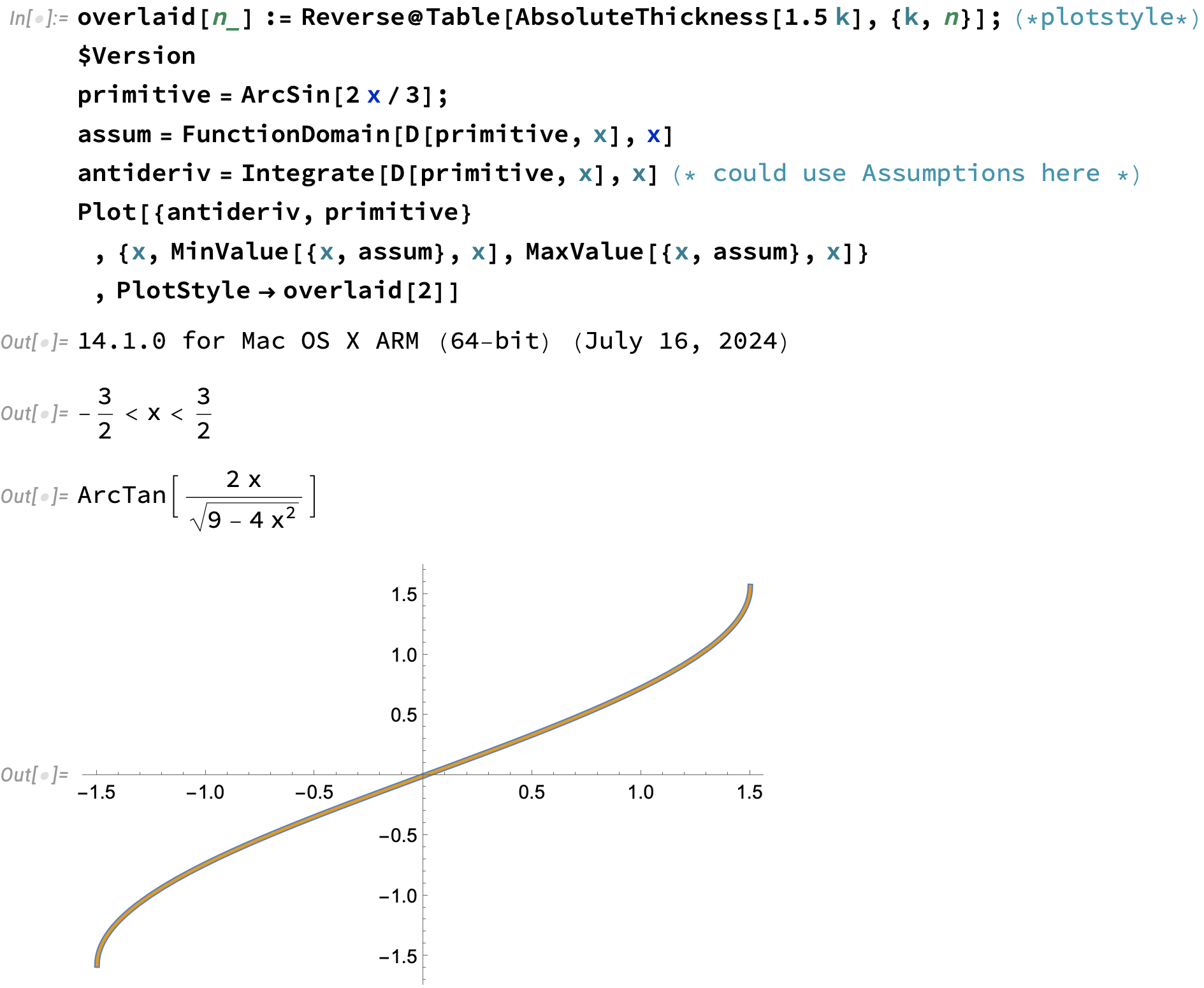I am looking to find a consistent way of finding integrals that result in inverse trig functions. I have been able to convert the output of
Integrate[D[ArcSin[2 x/3], x], x]
being
I Log[-2 I x + Sqrt[9 - 4 x^2]]
into an ArcTan form, which I then convert to an ArcSin form, though this form still differs to the original ArcSin[2x/3], being a translated Pi/2 units positively in the vertical axis and it does not work on a more general scale. An ideal solution to my issue would output ArcSin[2x/3] in this case and would work on a more general scale eg. D[ArcSin[2x+1/3], giving only real solutions to integrals.



ArcTan[(2 x)/Sqrt[9 - 4 x^2]], which is equivalent (no translation) toArcSin[2x/3]. (V14.1) $\endgroup$In[2]:= Integrate[D[ArcSin[2 x/3], x], x] // InputForm Out[2]//InputForm= ArcSin[(2*x)/3]I don't know if that was intentional or lucky, but withIntegrateI'm inclined to expect it's the latter. $\endgroup$